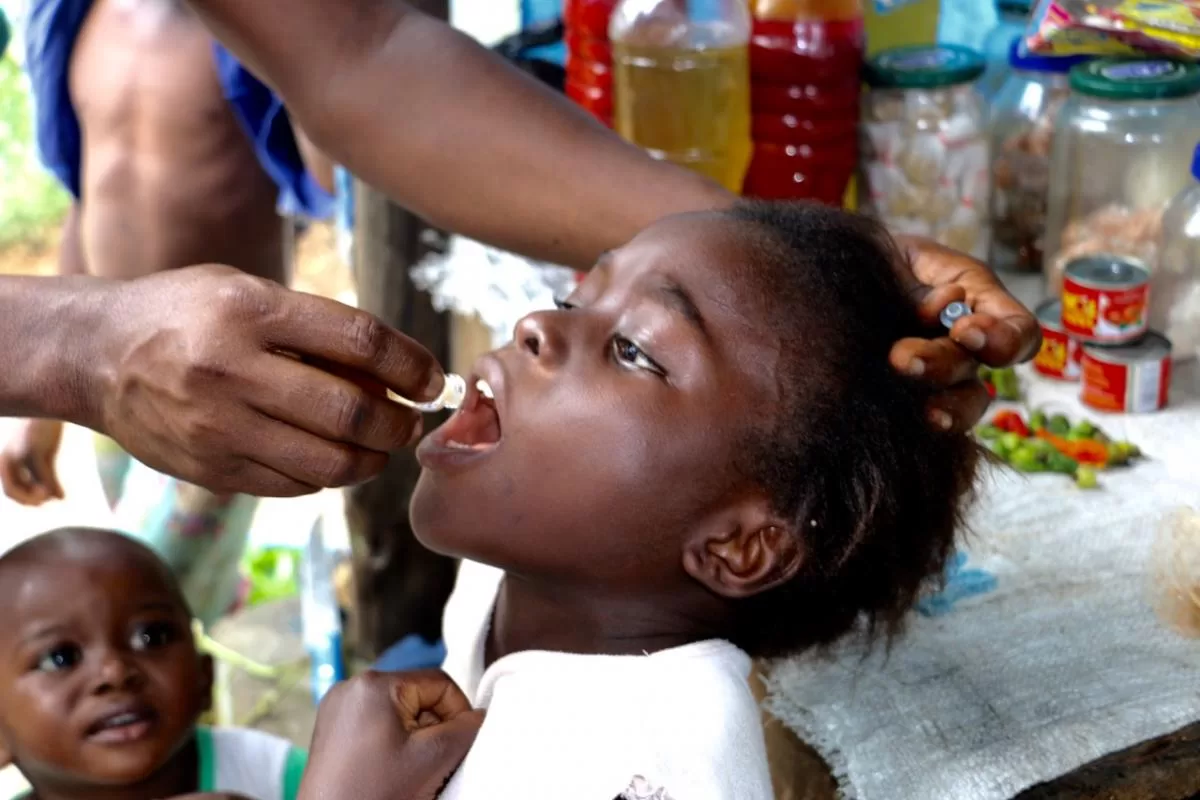Typhoid is a bacterial infection that can cause diarrhea, vomiting, and a high fever. Salmonella typhimurium is the bacteria that causes it (S. typhi). If a doctor finds it early, they can use antibiotics to treat it. If nothing is done, typhoid can kill you.
Most of the time, typhoid is spread through contaminated food and water. It can also spread from person to person by people who have it but don’t know it.
Typhoid is more common in places where sanitation and hygiene aren’t as good.
Nigeria has a lot of people with typhoid. In fact, it is thought that over six million people get typhoid every year in Nigeria.

Table of contents
Causes Typhoid in Nigeria
The bacteria S. typhi is what causes typhoid. It spreads through fecal matter that get into food, drinks, and water. If the water is dirty, it can also spread when you wash fruits and vegetables.
Some people with typhoid don’t have any signs or symptoms. Some people keep having the bacteria even after their symptoms go away. The disease can sometimes come back.
If a person tests positive for typhoid, they might not be able to work with kids or older people until their medical tests come back negative.
Symptoms of Typhoid
Like every other disease, typhoid has a set of symptoms that can be used to figure out what is wrong. Some of these signs are:
- Headache
- Fever
- Weakness and fatigue
- Sweating
- Muscle ache
- Loss of appetite
- Diarrhea
- Constipation
- Rashes.
As you will learn, antibiotics can be used to treat typhoid, which can be cured in a few days. In some cases, there may be problems that could lead to death.
Preventing Typhoid in Nigeria
When it comes to preventing Salmonella typhi from getting into your body, good personal hygiene and proper waste disposal are the best ways to do so.
Pay attention to what you drink
- Don’t drink water from a well or a tap.
- Stay away from ice cubes, popsicles, and drinks from the fountain unless you know for sure that they are made with bottled or boiled water.
- Buy drinks in bottles as often as you can (carbonated water is safer than noncarbonated water, be sure bottles are tightly sealed).
- Before you drink water that isn’t in a bottle, you should boil it for 1 minute.
- Hot milk, hot tea, and hot coffee are all safe to drink.
Be careful what you eat
- Don’t eat raw fruit or vegetables unless you can peel them yourself and your hands are clean.
- Don’t buy food from people on the street.
- Don’t eat meat or fish that is raw or rare. Foods that are served should be fully cooked and still hot.
- Only eat hard-cooked eggs and milk that has been pasteurized.
- Don’t eat salads or sauces made with fresh ingredients.
- Don’t eat any wild animals.
Keep yourself clean
- Wash your hands often, especially after using the bathroom and before touching food. If you don’t have soap and water, use hand sanitizer with at least 60% alcohol if you don’t have soap and water.
- If you haven’t just washed your hands, don’t touch your face.
- Don’t get too close to people who are sick.
- Keep the toilet door closed at all times.
- Avoid defecating in the open.
- If you are sick, you should stay away from other people, wash your hands often, and not make or serve food.
How to Treat Typhoid in Nigeria
Most of the time, typhoid is treated with medicines, IV fluids, and oral rehydration therapy. Most people in Nigeria also look for typhoid herbs as a way to get better.
In Nigeria, these are some common and effective typhoid drugs:
- Ciprofloxacin
- Azithromycin
- Ceftriaxone
- Ampicillin
- Cipro I.V.
It is strongly recommended that you first make an appointment with your primary care physician so that he or she can determine the most effective course of treatment for your typhoid.
Conclusion
Typhoid can cause serious problems that can be life-threatening if it is not treated. Every year, between 128,000 and 161,000 people die from typhoid around the world.
In most cases, 3 to 5 days after receiving treatment, patients begin to improve. Almost everyone who gets treatment right away gets better.





